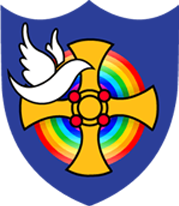Computing
Computing is of central importance in the modern world and this is reflected in how it is taught in our school. We are a school where children are encouraged to problem solve from nursery upwards.
We actively use APPs and online tools to support children with learning both inside and outside of school.
Our children learn to become highly effective problem solvers and computational thinkers.
In Early Years, the children are afforded ample opportunities to build upon these core 'unplugged' computing skills through their wider curriculum. They will learn how to stay safe when using technology, understand what a healthy amount of screen time is and become competent and confident when using information and communication technology.
The computing curriculum is split into three main strands that the children will explore: Computer Science, Information Technology and Digital Literacy.
In the Computer Science strand, the children will gain a secure understanding of algorithms and their use in our wider world. They will grow to become confident coders, proficient analysts and be able to create and debug a range of programs. They will use a range of equipment during their time in school such as Scratch, Lego and Blue Bots.
When learning about Information Technology, we want our children to recognise that digital content can be represented in many forms, be able to present and edit information themselves and use software to their advantage by storing information on a variety of networks.
Digital Literacy is an area we are passionate about in our school and it is essential that our children have a sound understanding of how to behave online and the strategies to keep themselves safe when using technology in school and at home. Our children love using technology across the curriculum and will be able to explore the online world responsibly.
The children will use a range of resources in their Computing lessons and our staff are always keen to share the children’s projects and learning on our school Facebook page. Keep an eye out for the wonderful work they are creating!
We are passionate about preparing our children for their future and for their jobs, many of which will not even exist yet and which will no doubt involve computing to some degree!
We are a paperless school, which has a positive impact both on effective communication with parents and carers, recycling and our carbon footprint!
It is important to us that we lead by example for our children!
Computing Intent Document
Computing at Chester-le-Street CE Curriculum Intent
Computing Curriculum Coverage

Computing Curriculum Documents
Primary National Curriculum - Computing
Computing Progression of Skills
Governor Monitoring 2024/25

